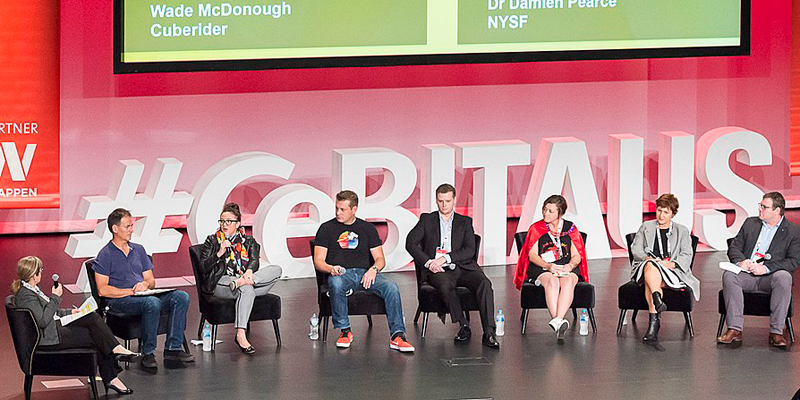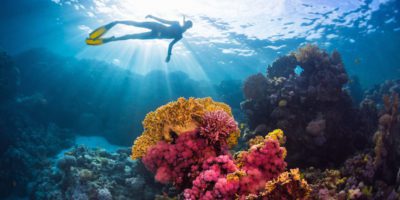Dr Marguerite Evans-Galea AM is a scientist, executive and entrepreneur. She is executive director of the Industry Mentoring Network in STEM with the Australian Academy of Technology and Engineering, as well as co-founder and co-chair of Women in STEMM Australia. Marguerite has led international research programs in cell and gene therapy for genetic disease at world-leading organisations in the United States and Australia, and has received numerous awards for her research and leadership.
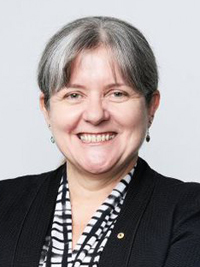
“We must strive to role model respect for every single colleague, no matter their level in the organisation, or in your network. We must step aside and create space, so others’ voices can be heard and actively cheer them on.”
Influencing positive change
My STEM career spans continents, disciplines, and different types of research. I enjoyed almost 20 years in fundamental and pre-clinical research in Australia and the USA.
In the last decade, I worked at the Murdoch Children’s Research Institute developing cell and gene therapies for Friedreich’s ataxia, a devastating neurodegenerative disease. As a strongly committed STEM advocate, I knew I could influence positive change within the sector and have a greater impact beyond the bench.
In 2017, I became the inaugural Industry Mentoring Network in STEM (IMNIS) executive director at the Australian Academy of Technology and Engineering (ATSE). I am also co-founder of Women in STEMM Australia, an internationally recognised non-profit organisation that has created a diverse, inclusive network of STEMM (with the extra ‘M’ being for medicine) professionals at all levels of academia, industry, education, and government.
Filling a gap in STEM
IMNIS is the Australian Academy of Technology and Engineering’s flagship industry engagement initiative that connects PhD students and early-career researchers with influential industry leaders in a one-year programme of mentoring and professional development.
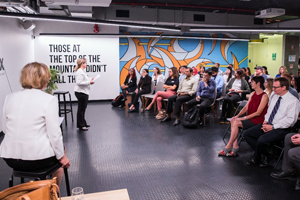
IMNIS fills a much-needed gap in the STEM sector with most mentees saying they want to collaborate with industry and can see themselves in an industry career after the programme finishes. In the next year, the programme will grow and expand further, with new opportunities in development, including an alumni programme.
Being adaptable is an asset
My role as IMNIS’ executive director involves many different tasks and responsibilities, drawing on a wide range of my skills and attributes. I can be pivoting between budgeting, team meetings, project catch-ups, stakeholder engagement, IMNIS mentor/mentee calls, reporting writing, networking, mentoring, board meetings, brain-storming, and more – so being adaptable is an asset.
I inherently apply scientific process in all that I do; that’s how I’ve been trained to ask questions, solve problems, troubleshoot, assess risk, budget, drive and strategise any project. I also employ analysis and critical-thinking daily. Connecting with people is frequent and relationship management is one of the most important aspects of my role.
Honesty is key
IMNIS mentors and mentees are carefully matched by experienced state-based STEM experts using a range of criteria including professional expertise, skills, discipline areas and career interests, while also taking specific requests into consideration.
We encourage all pairs to be open and respectful of the person on the other side of this new partnership. Trust, empowerment, and respect are absolute core elements in every effective mentor-mentee partnership. Open sharing of mistakes and failures, and being vulnerable on both sides are hallmarks of a healthy mentoring relationship.
The highs and lows of virtual mentoring
For some mentor-mentee pairs, our new virtual working world (due to COVID-19) has definitely been a plus. Mentees are largely comfortable with technology, so it has been mentors who have done most of the upskilling in this area. Some value that they don’t have to travel, and therefore save time and money. Others have found it more challenging, saying they much prefer the in-person mentoring experience, often citing ‘energy’ as the missing ingredient.
Interestingly, online networking has been more challenging for mentees. They prefer the ad hoc ‘hellos’ while grabbing coffee or a snack at live networking events. This is often because mentees may not be sure what to say, so we have provided some tips and pointers on virtual networking to help them move forward.
The power of diverse teams
Inclusive leadership is the key to success when it comes to innovation. There are countless studies and reports showing that organisations with more women and diversity on their boards will have increased revenue compared to their counterparts.
We must take an intersectional approach in what we do, how we do it and in the people who make it all happen – that way we launch into action with the very best ideas and expertise. We can also harness the full potential of our STEM workforce to energise innovation by fostering a culture that values not only all people, but also all research – fundamental, theoretical and ‘discovery’ research as well as applied research that translates to product, practice or policy.
Supporting interdisciplinary collaborations, sharing knowledge, extending our networks, pooling resources, and encouraging workforce mobility and skills exchange, not only increase productivity but also yield the best solutions and innovations.
We need diverse researchers with a range of knowledge, skills and attributes – interpersonal skills and business acumen in addition to their technical skills. This will also aid streamlined testing, translation, and commercialisation for faster implementation.
When we open the ivory tower and invest in inclusive systematic structures, policies, and practices to enhance engagement between industry and academia, Australia will be able to respond to any crisis with resilience and innovation.
Being on an ally journey
Allyship is an active word. I don’t consider myself an ally (yet). Instead, I see myself as being on an ally journey, always listening, learning, and unlearning. I have been raised in a society where almost every aspect of our lives – the law, finance, science, education, medicine, arts and more, have been moulded and led by Caucasian men. I am also a white woman – these combined mean my world has had the skewed lens of privilege for a long time.
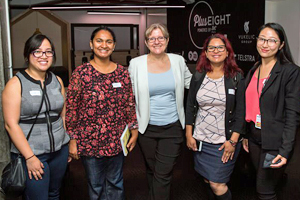
We must strive to role model respect for every single colleague, no matter their level in the organisation, or in your network. We must step aside and create space, so others’ voices can be heard and actively cheer them on. I do not call myself an ally because it’s not my place to say so. If someone thinks I am, then I take that to mean that I’ve made progress.
Time to grow and develop
I’ve put a few things on hold in recent years to really focus my energy on scaling the high impact initiatives I lead. While I remain highly committed to my work and volunteer activities, I will also be devoting some time to self-reflection and targeted, high-level learning. I love to keep challenging myself!
I have accumulated significant strategic and operational experience and expertise, and I’m keen to solidify this with clear frameworks. Therefore, I’m excited to be entering a period with some time dedicated to my professional growth and development.
As a values-led advocate leader, I will also continue to pour my personal and professional experiences back into my professional service and mentorship of others. I pay-it-forward with gusto and actively take an inclusive approach.
Finally, on a personal note, I’m especially thrilled to be cheering on my daughter – Breana Galea – as she embarks on her own journey of discovery in science (she’s doing a Bachelor of Science at the University of Melbourne).
https://www.linkedin.com/in/margueriteevansgalea
https://twitter.com/mveg001?lang=pt
https://womeninscienceaust.org/
https://twitter.com/womensciaust
Main image credit: CEBIT AUSTRALIA, CC BY 2.0 <https://creativecommons.org/licenses/by/2.0>, via Wikimedia Commons

